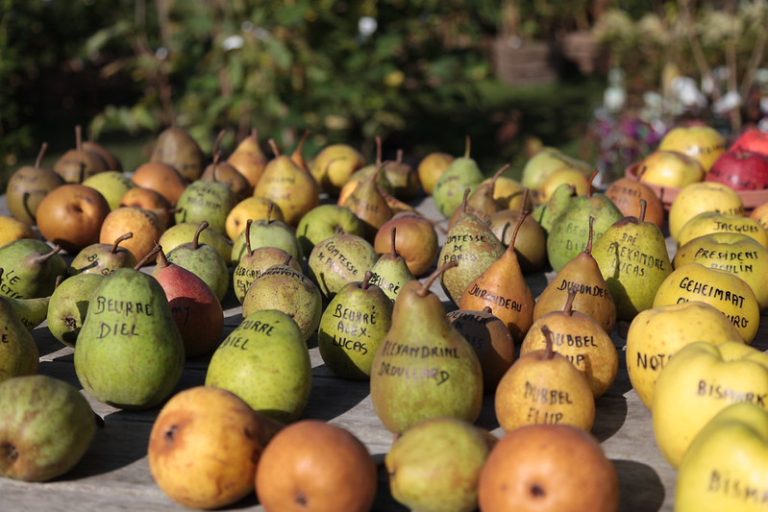
Agricultural biodiversity at risk with new seed regulation
On 10 December 2025, the Council of the European Union approved a mandate to begin negotiations with the European Parliament on a new seed regulation. Many civil society organisations have criticised the draft regulation for failing to protect small and medium-sized breeders, seed producers and farmers. They are calling for a diverse seed market, the implementation of farmers’ rights to seeds and guaranteed access to varieties suited to their farming systems.

Consumer associations call for continued labelling and traceability of GMOs
On 14 October 2025, eight consumer associations from various EU Member States published an opinion calling on European institutions to maintain GMO labelling to enable European consumers to make informed choices about their food.
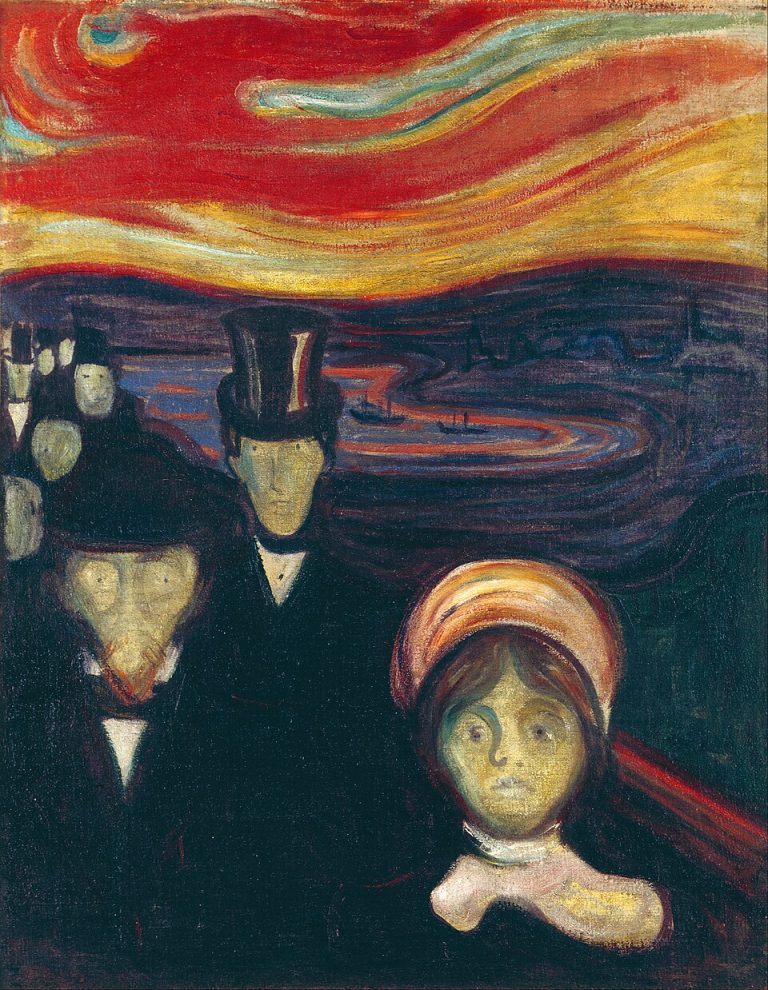
GMO/NGT Regulation: civil society organisations concerned about the outcome of the trilogue
As the trilogue on the regulation of new genomic techniques (NGT) continues, civil society organisations are expressing their concerns about the outcome of the discussions, particularly on the issue of patents. This is evidenced by two recent position statements: those of the European Coordination Via Campesina (ECVC) and Arche Noah, which illustrate their mobilisation around this crucial debate at a key moment when European decisions are being made.
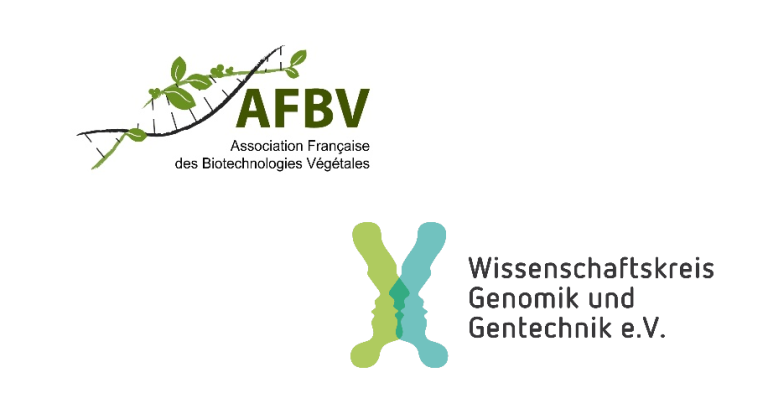
The scientific lobby joins the trilogue on the deregulation of GMOs/NGTs
As the European Union attempts to move forward with its trilogue on the deregulation of plant GMOs derived from new techniques (NGT), the French Association for Plant Biotechnology (AFBV) and its German counterpart (WGG) are stepping up to the plate. In a joint statement, they highlight the disagreements between the European Parliament and the Council, while arguing, on the basis of what they claim to be “scientific” arguments, for the deregulation of these GMOs, to the benefit of the biotech sector.
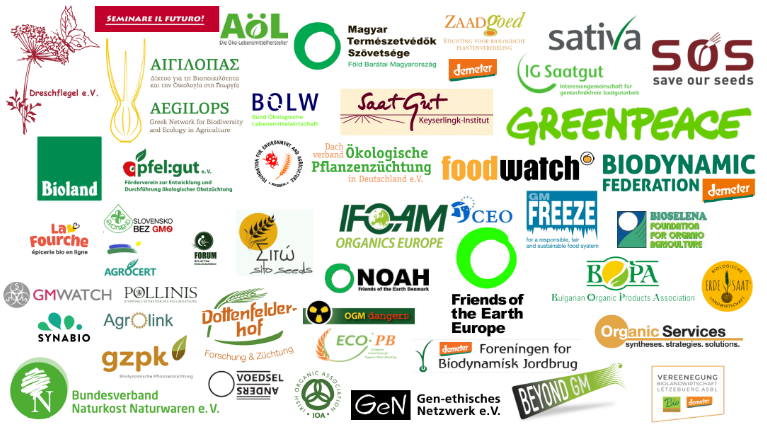
Detection and identification of GMOs still demanded
Three groups of French and European organizations have publicly called on political leaders not to abolish labelling and traceability requirements for GMOs produced using new techniques. In their view, maintaining these obligations is the only way to guarantee freedom of choice for farmers and consumers, and to protect the seed and peasant sectors from contamination and attempts by multinationals to take control of living organisms.
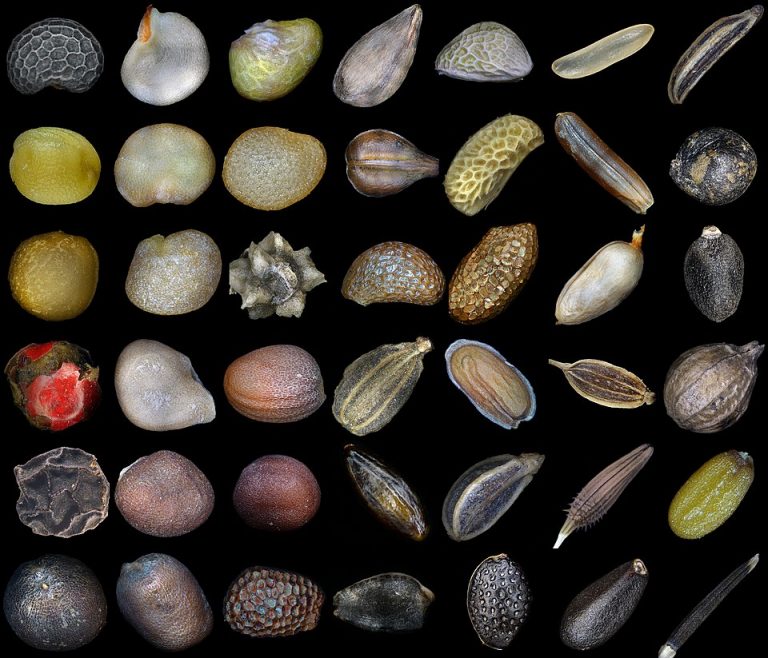
The ITPGR is working on a controversial reform
At the beginning of April, the Tirpaa again discussed the expansion of the list of crops covered by the multilateral system and the revision of the contract governing their use. While some Member States of the Treaty are invoking the need to guarantee global food security, fears are being voiced that there will be a drift in widespread access to peasant and traditional seeds. This would facilitate their patenting, without any real sharing of the benefits, to the detriment of the countries of the “South” and the rights of the peasants.
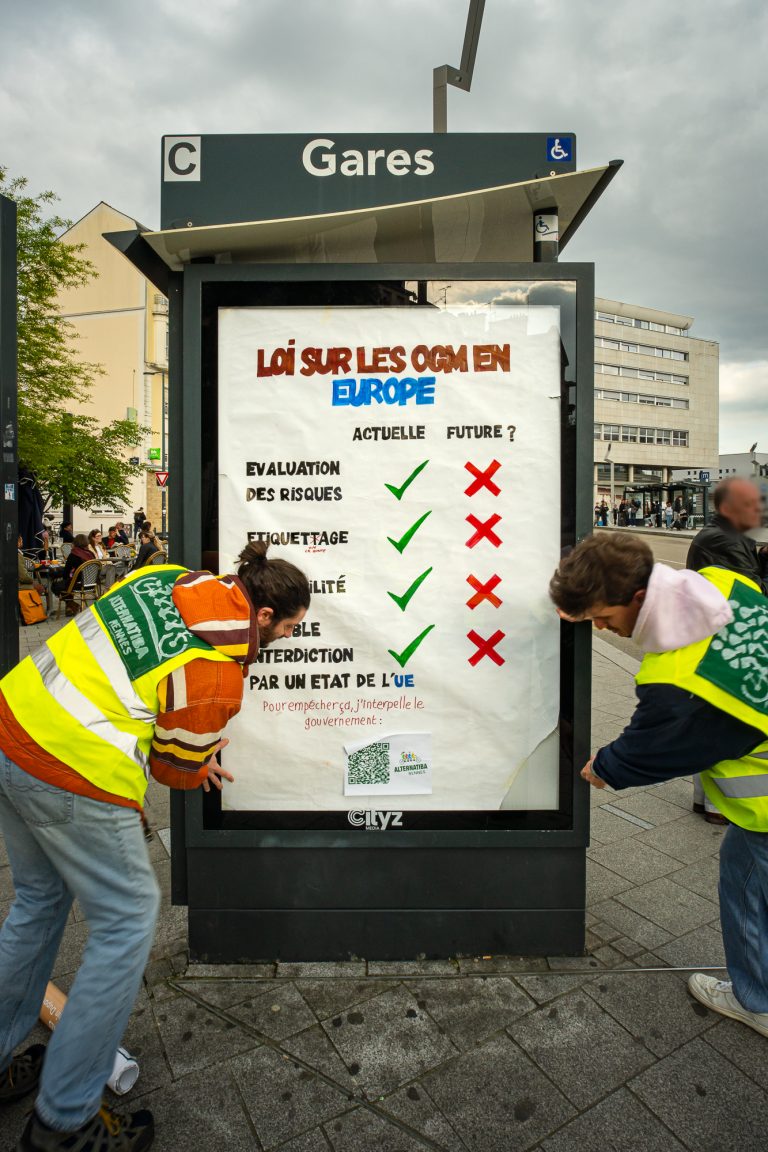
French organisations concerned about GMO deregulation
As the trialogue on the proposed deregulation of GMOs got underway on 6 May between the European Commission, the European Parliament and the Council of Member States of the European Union, French organisations are once again warning of the potential “serious and irreversible consequences of this text”.
Alternatiba Rennes, one of the signatories of this letter, has also taken action in the public arena.

AI creates new legal challenges in the field of patentability
“Artificial intelligence” (AI) is used to extract and restructure information from raw or unstructured data. Companies are using it to identify phenotypic traits associated with genetic sequences. Referring to a recent patent application by the company Inari, the German NGO Testbiotech points out the risks associated with the combination of new genomic modification techniques (NGT) and AI. It condemns the possible abuses of patentability and the need for robust GMO regulations. However, Inari has already filed other similar applications, which raises questions about the legal impact of such rights and their adaptation to AI-driven technologies.
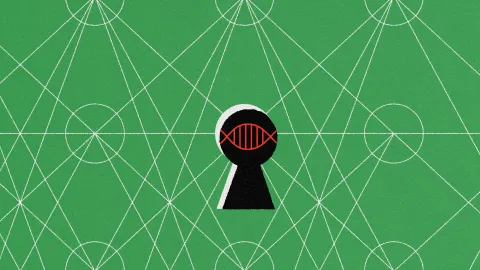
“Artificial intelligence” to digitize genomes
The digitization of living organisms is the subject of a growing number of projects. Computer data, generated and stored in ever-larger “data centers”, are used by “artificial intelligence” matrices. These data are of all kinds: genetic sequences, proteins, etc. In these fields, which require increasing natural resources, investments are multiplying.
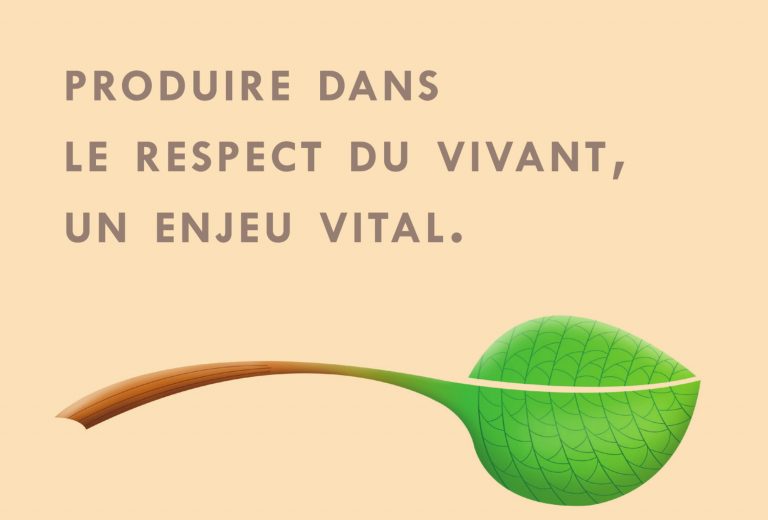
In 2025, more and more organisations are opposed to the deregulation of GMOs
In February 2025, two statements opposing the European Commission’s proposal to deregulate GMOs were published. On 11 February 2025, more than 200 organisations, including farming unions, NGOs, small and medium-sized breeders, and players in the organic and non-GMO sectors, published a “joint declaration on the deregulation of new GMOs”. On 21 February 2025, more than 70 French players in the organic sector published a collective opinion piece online in Mediapart.
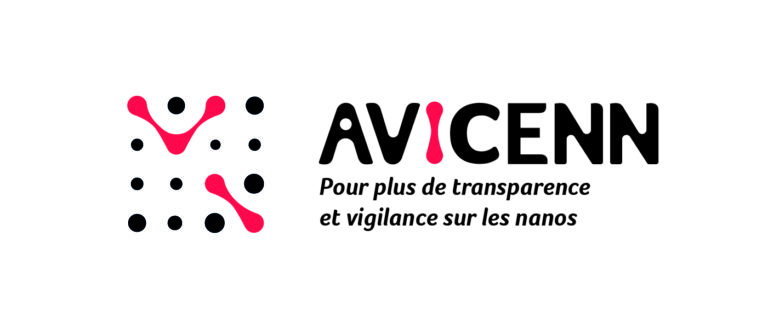
Nanotechnologies in the field: nothing new in twenty years?
Patents involving the use of nanos* in agriculture have multiplied over the last 20 years. However, there has been no improvement in the availability of information in this field. A recent report, commissioned by AVICENN and published by the European Chemicals Agency (ECHA), re-emphasizes the need to change European regulations in order to better identify, assess and manage nanos in the fields and the food. AVICENN is calling for greater transparency on the marketing and risks of nanomaterials that have long been used in agriculture.

Patents and GMOs: different stakeholders, different solutions
Since July 2023, the issue of patents on living organisms has been at the heart of debates in the European Union. These debates were sparked by the European Commission’s proposal to stop assessing the risks associated with GMOs, to stop labelling them as such, and to put an end to their detection and identification. In December 2024, a conference allowed several stakeholders of the debate to express their opinion.

